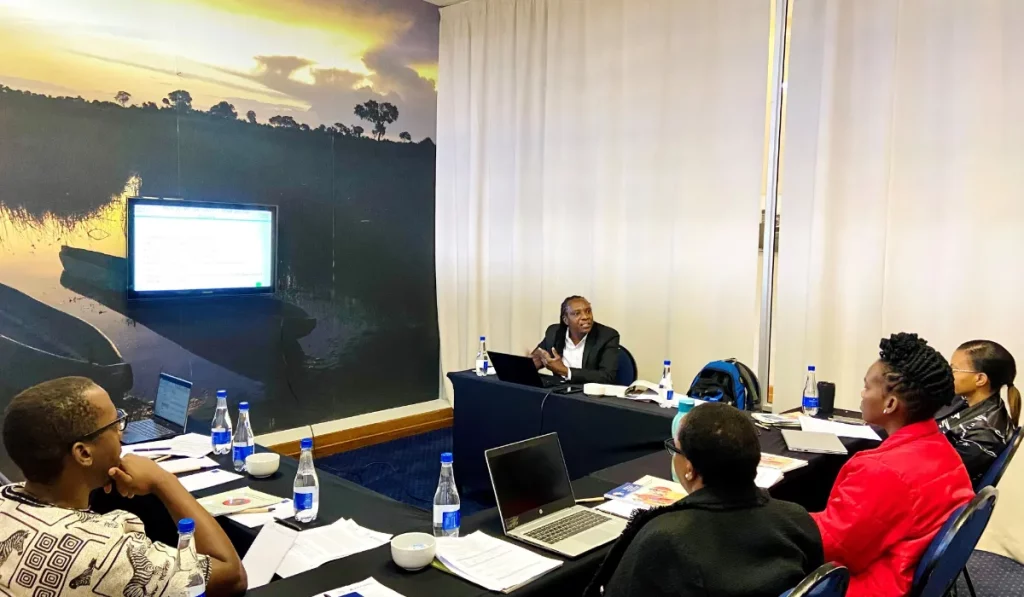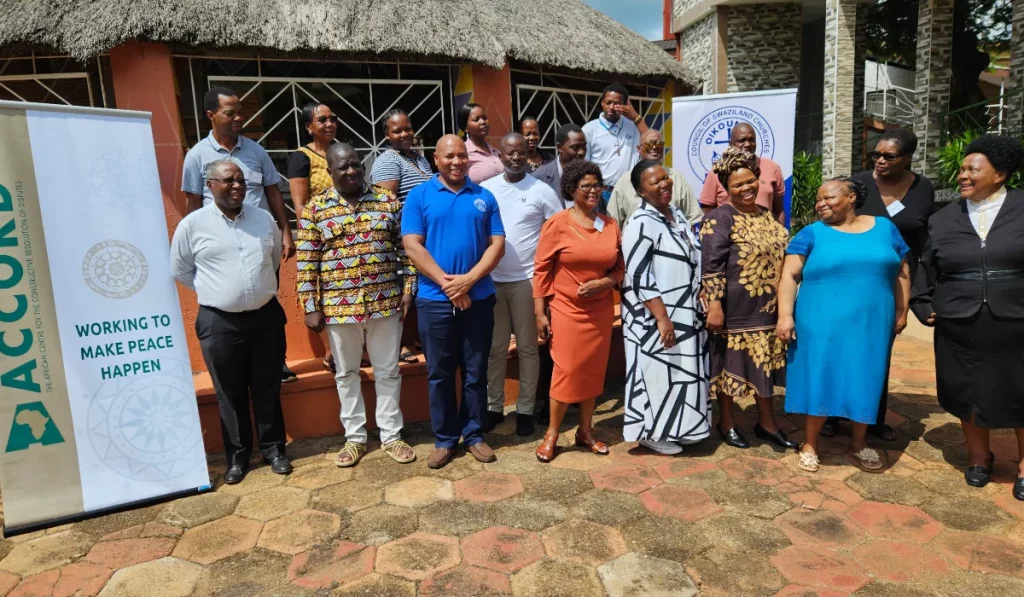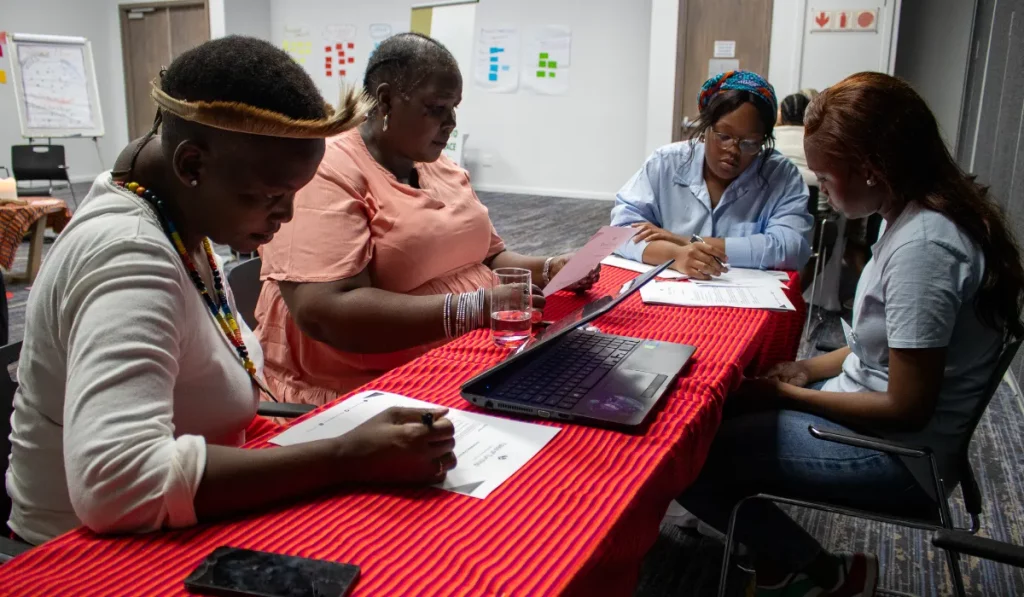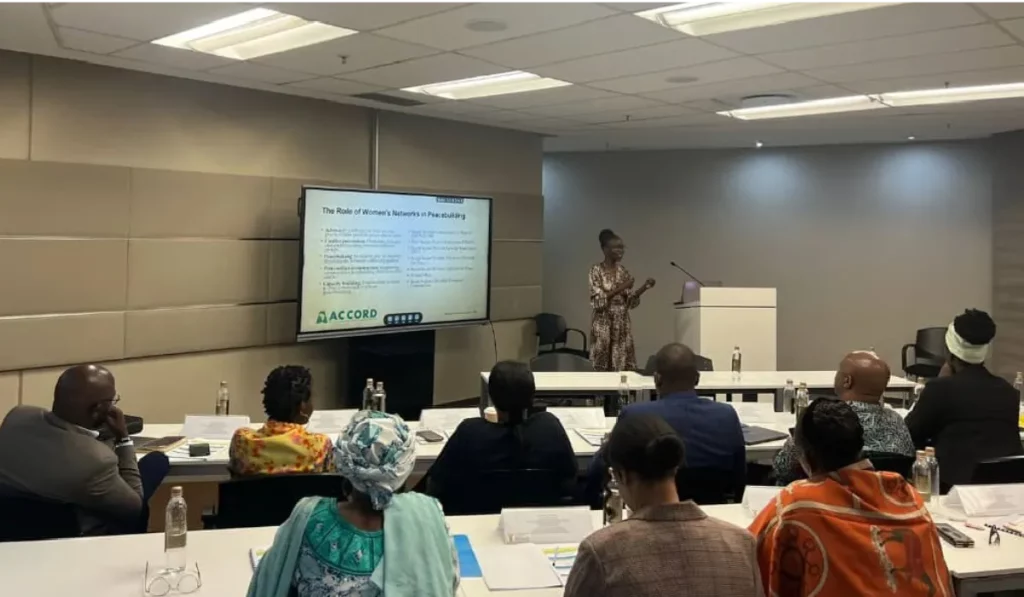Although large-scale agricultural land transaction is not a new phenomenon in Africa, the global financial and food crises that simultaneously erupted in 2007/2008 triggered a renewed interest in Africa’s agricultural land. Some have labelled the current trend ‘land grabbing’, others cautiously speak of ‘large-scale land acquisitions’, while the World Bank calls it ‘rising global interest in farmland’. Whatever terminology is employed to characterise this phenomenon, Africa is faced with the reality that large swathes of its farmland are being sold or leased out to large-scale investors.
Drawing on the Ethiopian experience – one of the epicentres of large-scale agricultural land deals in Africa – ACCORD Junior Research Fellow Dr Ojot Ojulu discussed the nexus between large-scale agricultural land deals and human security during an Internal Staff Seminar held at ACCORD’s Durban offices on 24 October 2013.
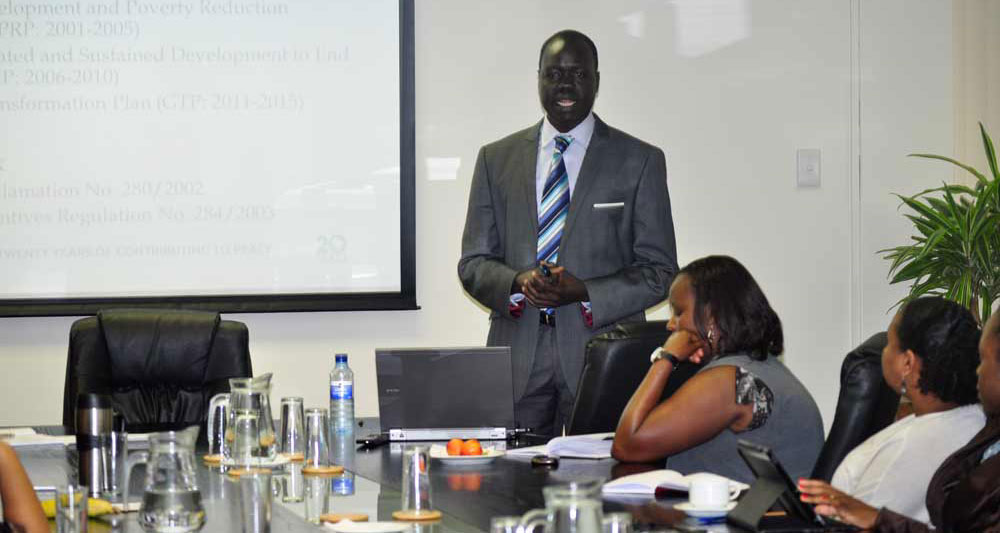
Dr Ojulu’s presentation was based on both qualitative and quantitative data collected in Ethiopia in 2012. His analysis suggested that inadequate respect for local communities’ right to land and associated natural resources is one of the main drawbacks of large-scale agricultural investments.
Based on his literature review, he identified the gap that discussions on this subject have remained narrowly focused on the economic, food security and environmental repercussions on the recipient countries and their communities. The impacts on human security and potential contribution to violent conflicts, however, have either been sidelined or are largely missing in the discussions.
The presenter argued that large-scale land deals in Ethiopia not only present a challenge to local communities’ right to land, territory and natural resources, but also pose a threat to the security and stability of the state and its relations with its diverse ethnic groups, particularly the indigenous communities in peripheral regions where those investments are made.
Dr Ojulu underlined that these land deals endanger domestic food security and, bring up new sources of human insecurity as local farmers are displaced from their lands and left exposed to both natural and anthropogenic environmental hazards. He explained that given the volatility of the regions to which these investments are directed, there is a real likelihood that existing communal conflicts will be exacerbated, or new forms of tensions created.
In Ethiopia, large-scale agricultural land deals encourage export-oriented production by providing incentives to those investors who export a large proportion of their products. In light of this, it might not be an overstatement to conclude that large-scale agricultural land deals in the country are driven by export and foreign earning priorities, over domestic food security needs.
Dr Ojulu ended his presentation by underscoring that the major question regarding large-scale land deals in Ethiopia is not whether investments are needed or not. It is about the ways in which those land deals are concluded in Addis Ababa, i.e. without consultation with relevant stakeholders and often leading to the displacement of local populations and a disproportionate prioritisation of exports over domestic food security and human security needs.
ACCORD Internal Staff Seminars contribute to the institution’s research and knowledge-sharing work which aims to encourage members of staff to engage around current affairs and the multi-dimensional facets of African geopolitics. ACCORD’s work contributes to peace and security by supporting the development and implementation of effective conflict prevention and resolution activities, which necessitates a comprehensive understanding of the continental policy theatre in order to promote sustainable development across the African continent.


